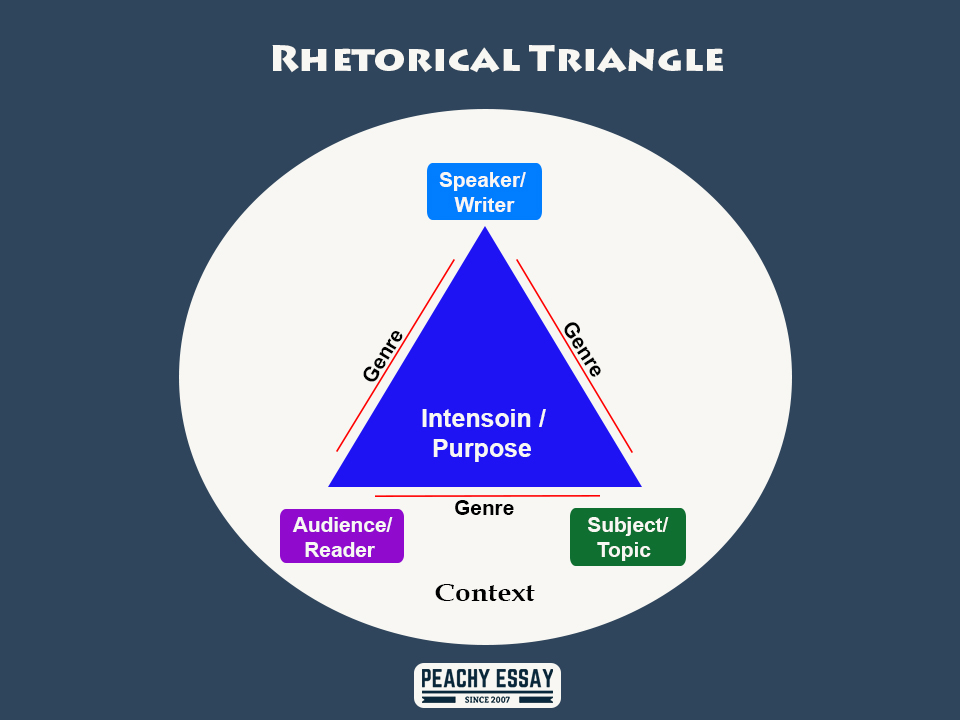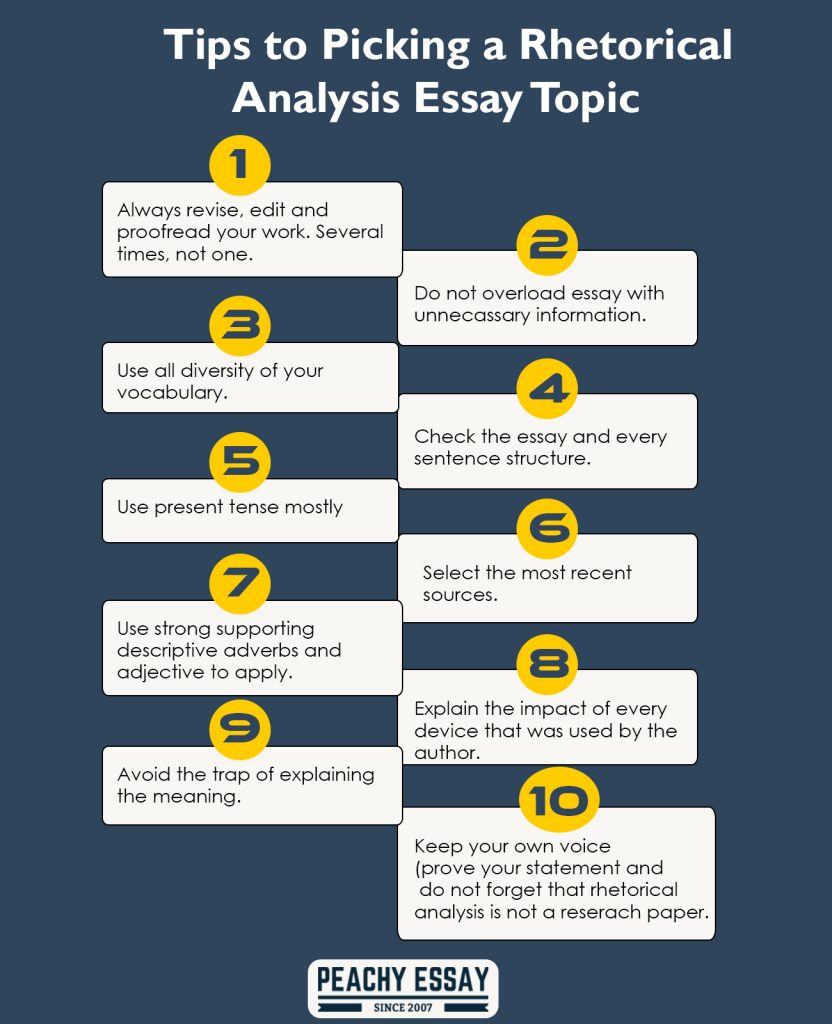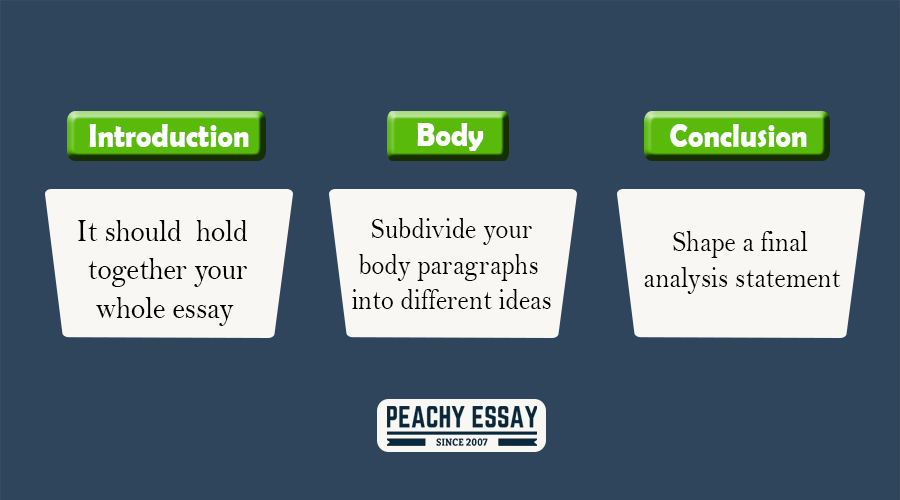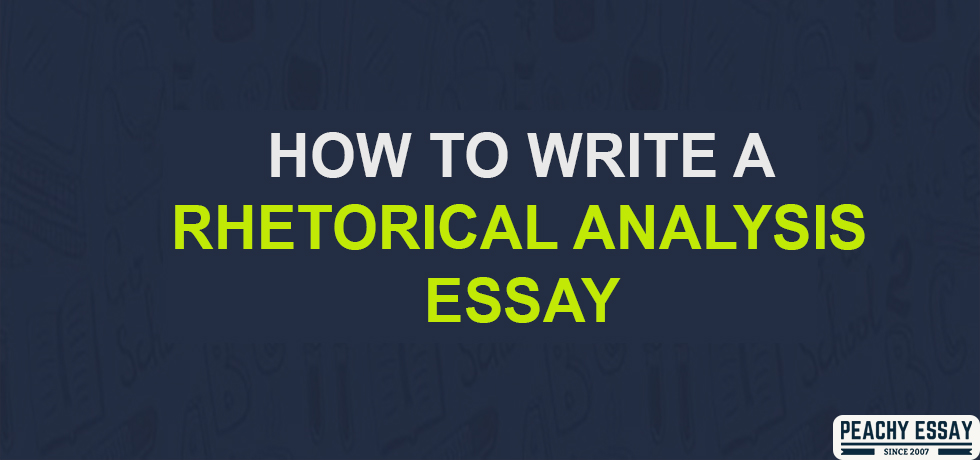How to Write a Rhetorical Analysis Essay
A rhetorical analysis essay is a type of writing where the author takes a look at the point in more noteworthy detail and demonstrates his outlook, utilizing viable and convincing techniques. From a more extensive perspective, a rhetorical paper signifies expounding on composing, dreaming about a fantasy, teaching an instructor, etc. It is one of the writing tasks which show up on the Advanced Placement (AP) English test.
The central matter is to make useful content by separating separated the words/expresses that the author thinks of to uncover the powerful strategies used to get criticism from the crowd. Genuine models include public addresses by different specialists. A viable assessment requires choosing a specific article to break down and decipher how totally composed segments identify with one another, shaping one entirety.

What Is a Rhetorical Analysis?
A rhetorical analysis is a way toward estimating how effective the author was in convincing, educating, or engaging their crowd. There are a large number of composing methodologies used to examine current, just as recorded, messages, yet note that in any rhetorical analysis article you should distinguish the composing style of the writer and their perspective. This requires dissecting the writer’s techniques for influence (words and expressions that the writer makes) and how compelling they are to readers.
Distinctive literary works are composed with the sole reason to convince readers in the legitimacy of the author’s thoughts and perspective. There is an assortment of systems and scholarly and expository gadgets that assist writers with arriving at this objective; and this is actually what you should manage while taking a shot at your rhetorical analysis paper.
There are a great many writing techniques used to dissect modern, historical, messages, but in a rhetorical analysis article, you should distinguish the writing style of the writer and their perspective. This requires dissecting the writer’s strategies for influence (words and expressions that the writer makes) and they are so compelling to readers. If you need more details about rhetorical analysis essay example, rhetorical analysis essay template, and rhetorical analysis essay definition, don’t hesitate to contact Peachy Essay for help.
Rhetorical Analysis Essay Prompt
In a rhetorical examination, students are given explicit prompts that clarify the reason for the assignment and determine the center regions.

Here is a case of a rhetorical analysis essay prompt:
- Write a five-page rhetorical analysis essay on the assigned text. Summarize the text’s key argument and explain how this argument was put together.
As you read the assigned text, find out how the author uses the following:
- Distinctive rhetorical strategies (feeling, ethos, logos)
- Thinking, proof, and guides to help their principle thoughts
- Persuasive elements
From the prompt, the fundamental motivation behind this errand is to characterize, investigate, and examine the main rhetorical highlights of the allocated text.
Rhetorical Analysis Strategies
There are three widespread techniques for influence—likewise called rhetoric procedures. To deal with the assignment, you have to have a decent comprehension of these methodologies and their utilization.
Here is a summary of the three rhetorical strategies.
Ethos
The ethos rhetorical gadget is the thing that builds up the author’s validity in a literary piece. Basically, the handy utilization of this methodology is the thing that assists readers with deciding if a specific author can be trusted on a particular issue. Validity is characterized by the writer’s mastery, information, and a good skill for a specific subject. As indicated by Aristotle, there are three classifications of ethos: arete (ethicalness, generosity), phronesis (valuable aptitudes and intelligence), and eunoia (goodwill towards the audience).
For instance, when the writer of a book is a notable master in a particular subject, or when an item is publicized by a celebrated individual – these are employments of ethos for influence.
Pathos
The word “Pathos” is a Greek word meaning “insight,” “enduring,” or “feeling” and is one of the three strategies for the influence that writers can use to speak to their readers’ feelings. More or less, the vital objective of this methodology is to evoke certain sentiments, such as joy and compassion, in their crowd with the sole objective of convincing them of something. The principle objective is to assist readers in identifying with the writer’s personality and thoughts. Some of the normal approaches to utilize pathos in ways of talking are through: narrating, metaphors, individual tales, etc.
For example, when you see a notice that shows miserable, cold creatures and it requests that you give cash to a creature shield or receive a creature – that is a clear use of emotional allure in influence.
Logos
As per the logos literary definition, this word deciphers from Greek as “ground,” “request,” “reason,” “feeling,” and so on. This explanatory technique is exclusively consistent; thus, not at all like ethos or feeling that depends on validity or feelings, the logos rhetorical gadget is utilized to convince readers using basic reasoning, realities, numbers and measurements, and other unquestionable information.
For instance, when the author of an artistic piece says something and supports it with substantial realities – that is logos.
These three procedures: logos, ethos, and pathos assume a basic function in writing a rhetorical analysis essay. The better you get them, the simpler you will have the option to decide how effective the author of the appointed content was in utilizing them.
Tips for Picking a Rhetorical Analysis Essay Topic
To compose an amazing rhetorical examination exposition, an understudy first needs to pick a convincing theme. The following are probably the best tips to consider for picking a subject that draws in the crowd:
Zero in on your inclinations
The fundamental stunt for composing a first-class paper is to zero in on a theme that you are really intrigued by. A lot of understudies commit the enormous error of picking subjects that are promising and moving, yet not drawing into them. Such a methodology can make expository composing considerably even more a test. In any case, on the off chance that you choose to ponder your inclinations and expound on something that truly draws in you, the creative cycle will turn out to be significantly more lovely and straightforward.
Pick a topic you know about
Another supportive stunt is to pick a subject that mirrors your insight. Picking something totally new to you can stall out even before you start composing. Remember that this scholarly paper expects you to make a careful examination of a writer’s composition and proof structure style, and the more knowledgeable in a specific point you are, the simpler it will be to deal with the investigation.
Conduct background research
While picking a point, guarantee that that subject will have an expansive enough degree, and enough data, for you to direct your research and composing. Hence, it is vital that you do some foundation research preceding picking a particular point. To do this, you can make a rundown of subjects that appear to be spellbinding to you. At that point, take as much time as necessary to investigate the accessible data from the picked subjects and pick the one that isn’t just captivating, yet in addition, offers great exploration and examination openings. Additionally, make certain to take notes on the theme’s most significant focuses when doing foundation research. These notes will prove to be useful later.
Approach your educator for counsel
If you have just illustrated the most intriguing points and done your experience research on them yet at the same time can’t decide, it will be a smart thought to get proposals from your teacher. Request that your teacher glances through your rundown to exhort you on the most appropriate subject.

Rhetorical Analysis Topics
In this article, we’ve gathered the main 10 subjects for an explanatory investigation exposition that will assist you with composing an ideal paper.
- Write the rhetorical investigation of a discourse that you’ve tuned in to and that has struck you the most.
- Examine Martin Luther King Jr’s. last discourse that he conveyed in 1968 in Memphis.
- Examine the popular William Wallace’s discourse logically in Mel Gibson’s Brave heart (1995).
- Jonathan Edwards’ lesson ‘Miscreants in the Hands of Angry God’ lectured in 1741.
- Give a rhetorical investigation of the discourse of a Nobel Peace Prize champ that you respect.
- Examine an Inaugural Address of a President, either acting or previous.
- Conduct a rhetorical investigation of the discourse alluded to as ‘I’m not a Crook’ given by Richard Nixon in Nov 1973 in Orlando, Fl.
- Give an explanatory examination of any speech by Shakespearian characters.
- Examine rhetorically the prominent Pearl Harbor Address given by Franklin D. Roosevelt in 1941.
- Break down Edgar Allen Poe’s sonnet ‘Raven.’
A bit of rhetorical investigation may appear to be a genuine issue for students. It appears to be a ceaseless torment to start from the very beginning again every time you are composing isn’t what it is relied upon to be. A few understudies keep on battling with it; others look for an exit plan. In fact, this issue can undoubtedly be settled when you comprehend what a rhetorical examination paper is and how to pick the correct subject. The primary concern is that a manner of speaking paper isn’t either an account or an intelligent bit of composing. Your feeling is still truly significant; however, you should frame it keeping the severe principles of investigation. That is the reason there are, for the need of a superior word, ‘badly designed’ points, that is, they are not tied in with investigating the subject logically.
The ways to deal with composing an expository examination and picking points for it can change to either degree. It is simpler to choose a verifiable bit of composing. Talks truly stand apart among others. Your definitive objective is to show your crowd how various parts of this bit of composing have become something basic. You should put together your investigation with respect to the primary standards of talking points. Perhaps the best case of these standards is an inquiry that shouldn’t be replied to. It is likewise essential to make a sound proposal and give the contentions demonstrating your point all through the entire paper.
It is likewise extremely valuable to pick a striking bit of composing which doesn’t need to be acquainted with the crowd. If you pick a discourse or a lesson given by a conspicuous pioneer, you can spare a ton of time and ensure that your examination will prompt the ideal impact. You can likewise pick a sonnet or a talk; however, just if the end will legitimize the methods. To make your paper additionally fascinating, you may embrace a perspective that varies a little from the general conclusion.
The most effective method to write a Rhetorical Analysis: Step-by-Step Guide
Stage 1: Read and dissect the content
Composing a rhetorical analysis article begins with perusing and dissecting the relegated text. As you start perusing, take notes of important data that will assist you with streamlining the investigation cycle.
Stage 2: Identify the writer’s techniques
Here are the issues you ought to consider while perusing that you can attempt to answer later in your examination:
- Who is the creator and who was their expected objective crowd?
- What was the motivation behind composing the discourse/venture?
- Does the setting have any significance or association with the primary message(s)? Assuming this is the case, for what reason did the writer pick that particular setting?
Having these inquiries as the main priority will make it simpler to break down the writer’s methodologies once you begin composing. At any rate, these inquiries give you a format to work off of and will assist you with understanding the creator’s techniques for influence.
Stage 3: Look for enticing strategies utilized by the creator
The elements for influence, as Aristotle called them, can be separated into three classifications: ethos, sentiment, and logos.
In each Advanced Placement (AP) English test (where logical investigation papers are ordinary), the scholarly brief for your exposition will contain instances of at any rate one of the three enticing techniques. In the wake of utilizing the foundation information to help direct you, it ought not to be too hard to even think about figuring out which strategy the speaker utilized.
Rhetorical Analysis Essay Outline
The rhetorical analysis essay outline entails the following sections.

Introduction
In your introduction, give any essential foundation data identified with the writer or the subjects covered by the writer. You additionally need to incorporate your proposal, referring to the creator’s central matter or reason and the logical gadgets he used to accomplish this reason. The greater part of your exposition ought to be the body sections, so keep your introduction quick and painless.
The rhetorical analysis thesis statement appears in the last sentence of an introductory paragraph. Under this section, you are supposed to state your main argument regarding the topic.
Body paragraphs
The least demanding approach to sort out your body sections is to dedicate one body passage to each rhetoric strategy referenced in your proposition. These sections ought to show up in a similar request wherein you recorded the logical gadgets in your postulation. Each body passage needs its own personal point sentence that unmistakably states what explanatory gadget will be covered, just as the gadget’s general reason. Next, you ought to give a few models showing the writer’s utilization of the gadget. Ensure you likewise clarify how every model represents the method being talked about.
Conclusion
Your conclusion ought to restate your primary points. Associate the rhetorical devices you analyzed all through the article, clarifying their general impact on the reader.
In your last sentence, apply your contention on a more significant level: Why does it make a difference? How can it identify with this present reality? What’s the significance of the discourse or text you examined?
Edit
Since you’ve composed your decision, you’re totally done, correct? One moment—it’s fundamental to commit some an ideal opportunity to update and alter your article.
Focus on language structure, spelling, word utilization, and the progression of thoughts. Are the entireties of your thoughts sensibly associated? Did you use changes? Is your paper clear and brief? If you can unhesitatingly reply, “Yes” to these inquiries, everything is okay!




